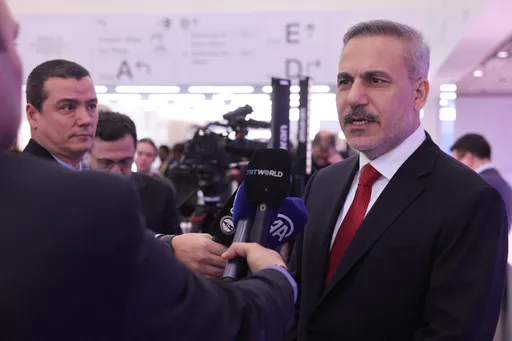When Josephine Ndunge gave birth to a daughter in a hospital in Kenya's Nairobi 31 years ago, nothing would have prepared her for what she was about to experience.
"Seeing my baby for the first time ranks as the most traumatic moment of my life. To say I was shocked beyond belief would be an understatement," Josephine tells TRT Afrika.
The reactions waiting outside the delivery room would make it worse for the new mother.
"People started saying all kinds of things. Some suspected I tried to abort the foetus, which is why this happened. A few remarked that having a child like mine was a curse. It was such a heavy burden to bear before I had even held her for the first time," she recalls.
Eunice Ruben was born without legs and diagnosed with an extremely rare and severe congenital condition called phocomelia that causes limbs to be fully or partially malformed or absent. In her case, the arms were normal.
Standing only 59cm tall and weighing 26kg as an adult, Eunice has had a life filled with challenges. "I always say, 'I am the shortest person in the world'," she tells TRT Afrika.
Her childhood years were the most trying as Eunice and her family needed to reconcile themselves to her irreversible condition. Outside the protective confines of home, she faced suspicion, misunderstanding and, sometimes, outright cruelty.
Understanding phocomelia
The most documented cause of congenital limb malformation is exposure to high-toxicity drugs like thalidomide, used to treat some cancers, and chemicals like mercury during early pregnancy.
Research has shown that phocomelia can also result from genetic mutations or environmental factors.
Growing up, Eunice couldn't comprehend the stares and hurtful words that greeted her almost everywhere, chipping away at her self-esteem. The unkindest cut was that these reactions often came from people she thought were close to her family.
"One relative called me 'half a person'. At times, I tended to believe them. I would hate myself for being the way I was," she tells TRT Afrika.

The sense of isolation and pain led Eunice down a dark path. She attempted suicide multiple times.
"I felt trapped in a body that didn't match who I was inside," says Eunice, now more at peace with herself than she ever was.
The catalyst in Eunice's journey from wallowing in self-pity to acceptance and adaptation was a gentle, conscientious teacher who looked beyond her physical disability.
"My teacher told me, 'You are unique. You can do things even an able person can't do'. That's when I accepted myself. That's when I was born again," Eunice says. "Those words of encouragement became the foundation for self-acceptance."
Family becomes bedrock
Eunice's sibling, Christine, has been a steadfast source of love and support, helping her tide over the many obstacles thrown her way.
"Being Eunice's sister has taught me the true meaning of strength," Christine tells TRT Afrika. "It's a lot of fun just being her sister."
Such is their bond that Christine instinctively feels what her sister does. "The only thing that pains me is seeing her sad. But I have come to understand that's part of life. When she can't walk, I tell her, 'My legs are yours'. For two people, we have one pair of legs," she says.
Not that Eunice can't get by without someone by her side at all times. The 31-year-old lives independently. She cooks, washes her clothes, does push-ups and stretches, and even plays football with her hands.
These simple daily acts serve as a reminder to herself more than anyone else that she is capable of living life entirely on her terms.

So, what would Eunice's message to the world be?
She immediately talks about self-worth being measured not in centimetres or kilograms, but in spirit and joy.
"I always say to people who care to ask that I do what makes me happy. The rest is nonsense."
























